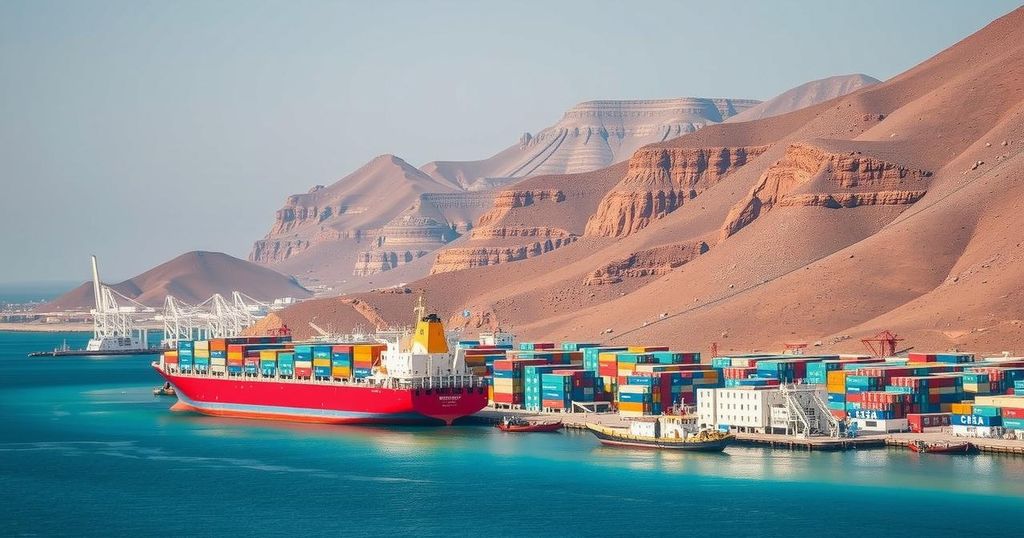Chinese Investments in Djibouti: Opportunities Amid Red Sea Crisis Concerns

China’s investments in Djibouti under the Belt and Road Initiative are significant, focusing on transport, mining, and port infrastructure. However, the Red Sea crisis raises concerns about the stability and future growth of these investments, given Djibouti’s limited agricultural and manufacturing capacity alongside heavy import reliance. The acquisition of a salt firm by a Chinese enterprise represents both opportunity and risk in this complex environment.
China has increasingly invested in Djibouti, a strategic location pivotal for East African trade, particularly within the framework of the Belt and Road Initiative. This partnership has propelled Chinese enterprises into diverse sectors such as mining, transportation, and port development. Additionally, Djibouti hosts China’s sole overseas military facility. Despite these advancements, concerns have emerged regarding the stability of investments due to ongoing crises in the Red Sea region, which could impact economic activities.
Djibouti’s geographical advantages present opportunities but also highlight limitations. The nation grapples with insufficient manufacturing capabilities and an inhospitable climate that allows only 1% of GDP to arise from agriculture. Consequently, it remains significantly reliant on imports. Interestingly, Djibouti is home to Lake Assal, noted for hosting the world’s largest salt reserve, yet this asset has been largely neglected in terms of local economic development.
The transformation began in 2015 when the China Communications Construction Company took over an American-controlled salt enterprise, creating the Djibouti Salt Investment Company. This acquisition symbolizes the ongoing trend of Chinese investment directed towards harnessing local resources, yet analysts caution that geopolitical tensions stemming from the Red Sea crisis could complicate operations for foreign entities, including Chinese firms, ultimately threatening the momentum of growth in Djibouti.
Djibouti has emerged as a focal point for Chinese investments, capitalizing on its strategic position near critical maritime routes. As part of the broader Belt and Road Initiative, these investments aim to enhance infrastructure and establish economic ties across the East African region. The necessity for China to diversify its supply chains and secure trade routes has further cemented Djibouti’s importance. However, the nation’s geographical and climatic challenges present significant hurdles, necessitating foreign investment for development.
In summary, while Djibouti presents substantial investment opportunities for Chinese businesses, particularly within the realms of infrastructure and natural resource extraction, the potential instability resulting from the Red Sea crises poses a considerable threat. These geopolitical dynamics require careful navigation by corporations seeking to cement their foothold in the region. Maintaining awareness of these developments is crucial for stakeholders to mitigate risks while maximizing the benefits of such strategic investments.
Original Source: www.scmp.com








